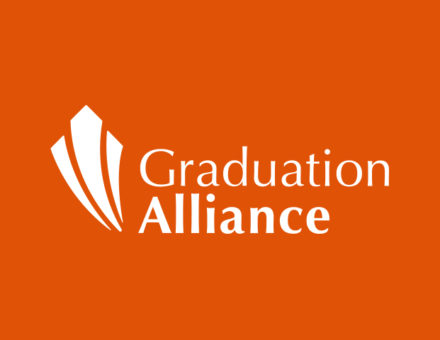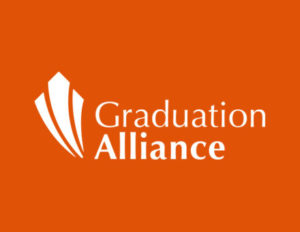
 One of the things that I like to do is skim through the monthly lobbying reports available on the Ethics Commission’s website; just to see who is being lobbied on education issues and by whom. While doing this, I stumbled upon a company called Graduation Alliance. To give you a little background, Graduation Alliance offers online instruction. Recently, they took over the responsibility of running the Louisiana Connect site for college access and career planning. The previous company, ConnectEdu, went bankrupt just 5 months after receiving a $500k grant from the Bill and Melinda Gates Foundation, and Graduation Alliance purchased a portion of their assets, including student rosters.
One of the things that I like to do is skim through the monthly lobbying reports available on the Ethics Commission’s website; just to see who is being lobbied on education issues and by whom. While doing this, I stumbled upon a company called Graduation Alliance. To give you a little background, Graduation Alliance offers online instruction. Recently, they took over the responsibility of running the Louisiana Connect site for college access and career planning. The previous company, ConnectEdu, went bankrupt just 5 months after receiving a $500k grant from the Bill and Melinda Gates Foundation, and Graduation Alliance purchased a portion of their assets, including student rosters.

What caught my eye about Graduation Alliance was that on October 10, 2016, Brigitte Nieland registered herself as their lobbyist. Now, if you have followed my blog, or the ed reform fight in Louisiana, you know that Nieland is employed by the Louisiana Association of Business and Industry (LABI); the organization that has been largely responsible for the destruction of public education and the teaching profession. In addition to LABI and Graduation Alliance, Nieland is registered to lobby for Roedel Parsons Law Firm which represents Charter Schools USA, Connections Academy, I-Teach, Orleans Parish School Board, Pearson Education and Responsive Education Solutions. Do you see the pattern here? With the exception of OPSB, all of these organizations stand to profit from legislation that supports “choice” and the privatization of public education. Now, I would argue that anyone employed by Roedel Parsons Law Firm is acting unethically by representing OPSB while representing all of the “choice” organizations, but that’s another blog.
Back to Graduation Alliance. The question I had to ask was why, when already doing business in Louisiana, would Graduation Alliance need to engage a lobbyist, now? Here is what I found.
Graduation Alliance began its life as The American Academy; an online provider for high school coursework. After teaming up with Austin Ventures and New Markets Venture Partners, they expanded their offerings to alternative education, workforce diplomas and dropout recovery; giving birth to Graduation Alliance. This is all fine and dandy given these are the hot-topics in and around the ed reform agenda, but recently, there has been a lot in the news about the national graduation rate increasing. I did more research. It was easy. A very large lobbying firm in Michigan couldn’t resist bragging about what it had helped Graduation Alliance accomplish.
In Michigan, Graduation Alliance was trying to establish a “dropout recovery” opportunity, but was met with much resistance. The “dropout recovery” model that Graduation Alliance wanted to employ had a six-month completion, and the completer would receive a diploma from the school they dropped out of. The school got credit for the completer, but Graduation Alliance needed to be compensated for each month that a student participated. The public education system thought that they were attempting to change the State’s funding formula to a 1/12 model, which they did not want. Michigan Legislative Consultants helped the change the law to facilitate their model.
In Louisiana, school districts receive their MFP monies in 12 installments, so it isn’t likely that this is their barrier. They are already deploying “dropout recovery” in Ascension Parish, and it is funded by Ascension Parish; however, I suspect that in order for Graduation Alliance to sell their product statewide, it will be necessary to effect a policy change; most likely in the manner that the MFP is funded.
Most people would agree that any program that is intended to recover dropouts and provide workforce diplomas would be an asset to Louisiana. I agree, as well…if these were facilitated by the public education system. The motivation for companies like Graduation Alliance is not education. It is profit. Mark Grovic, co-founder of New Market Venture Partners, stated in an interview:
“Our focus is to understand the pain points that keep people from successfully navigating the education system,” shared Grovic. “What we’ve learned is that there are plenty of achievement and skills gaps that lend themselves to exciting business models in both K-12 and higher-ed.”
What makes a business model exciting? Profit! Think about this. If school districts only needed enough operating finances to fund teacher salaries and curriculum, the cost of running public schools would be far less, right? All of that money used for buildings and maintenance, janitors, support staff, buses, cafeterias, food, etc. wouldn’t be needed. Virtual education providers don’t have all of these expenses. Huge savings, right? Wrong! Virtual providers get FULL PER PUPIL FUNDING FROM THE MFP.
 Early in this blog, I mentioned K-12, Inc. as one of the companies that employs Roedel Parsons Law Firm to lobby. Though I haven’t found evidence, it is safe to assume that they, too, will engage in at minimum, dropout recovery. What I did find is the perfect illustration of why hedge fund managers, and portfolio managers looking for new markets, would want to get into education. In its 2016 Annual Report, K-12, Inc. reported to its investors that the company’s total revenue was $872.2M and total operating expenses, including a $7.1M settlement in California, was $302.2M. That leaves a whopping $570M for interest, taxes, depreciation, and amortisation before shareholder distribution. A 53% profit margin. Quite an investment.
Early in this blog, I mentioned K-12, Inc. as one of the companies that employs Roedel Parsons Law Firm to lobby. Though I haven’t found evidence, it is safe to assume that they, too, will engage in at minimum, dropout recovery. What I did find is the perfect illustration of why hedge fund managers, and portfolio managers looking for new markets, would want to get into education. In its 2016 Annual Report, K-12, Inc. reported to its investors that the company’s total revenue was $872.2M and total operating expenses, including a $7.1M settlement in California, was $302.2M. That leaves a whopping $570M for interest, taxes, depreciation, and amortisation before shareholder distribution. A 53% profit margin. Quite an investment.
In the quest to facilitate privatization, ed reformers maintain that public education is laden with wasteful spending. This is their answer. Yes, there is much room for improvement in the spending of public education dollars, but this is a blatant rape and pillage of taxpayer dollars. We must be vigilant in our efforts to stop it. The only acceptable manner of altering the MFP is to reduce the per pupil funding for virtual providers. It is safe to say that the ed reform agenda is still in motion. With every turn, you will find that they are pushing one issue to camouflage another. Next time, we’ll talk about Relay Graduate School of Education.


I suggest that MFP alteration is not the only way for these leeches to skim that money. For instance, LEAs were allowed to enter into MOUs with LDOE wherein they agreed to have their MFP allocation reduced equivalent to the cost of the ACT series of retests. As you know, ACT scores are part of SPS. Students who retest tend to raise their scores. White has allowed LEAs (who can afford it) to pay their way to better scores. Of course some LEAs (poor, rural) can’t afford this scam so don’t benefit. I will send you the data (MOUs, $$$, which LEAs participate etc) as soon as I get it from my FOIA in hopes you will write about it. As for credit or diploma recovery, I have no doubt that LEAs will be offered the same opportunity to buy their way to higher scores/SPS. Question is, with the 70% rule, will these retests etc qualify as classroom costs? Are there other considerations that would make this scam illegal?